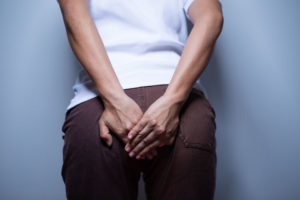 Anal fissures are basically wounds in the anal cavity and sometimes begin as hemorrhoids. An anal fissure doesn’t lead to additional health problems, but it can lead to debilitating pain and digestive issues. It is important to seek professional and expert treatment if you have signs and symptoms of anal fissures.
Anal fissures are basically wounds in the anal cavity and sometimes begin as hemorrhoids. An anal fissure doesn’t lead to additional health problems, but it can lead to debilitating pain and digestive issues. It is important to seek professional and expert treatment if you have signs and symptoms of anal fissures.
Dangers of Mistreatment
There are a lot of treatment options out there for anal fissures that are not effective or can make the problem worse. Some doctors prescribe Preparation H or similar over-the-counter remedies, but these will prevent the wound from healing properly. Botox and other experimental treatments are often expensive and ineffective. If your anal fissures are not treated appropriately, it could lead to a longer-term wound that does not heal. The associated bleeding may also cause anemia.
Appropriate Treatments
There are several appropriate treatments available for anal fissures. After a brief and gentle examination, Dr. Shapiro will determine the best course of treatment. Initial treatment usually involves a cream that contains medication to assist in healing the wound. Topical anesthetic can also provide some relief from the pain. If the anal fissure still does not heal on its own, a minor surgical procedure can be tried.
The most effective treatment for anal fissures is an outpatient procedure called subcutaneous lateral internal sphincterotomy, which typically has no complications or side effects. It is important to try noninvasive treatments first, but if they are unsuccessful this treatment is extremely effective.
If you have debilitating and sharp pain like broken glass accompanied by bleeding with your stools, you may have anal fissures. Contact us today for more information or to schedule your appointment.








